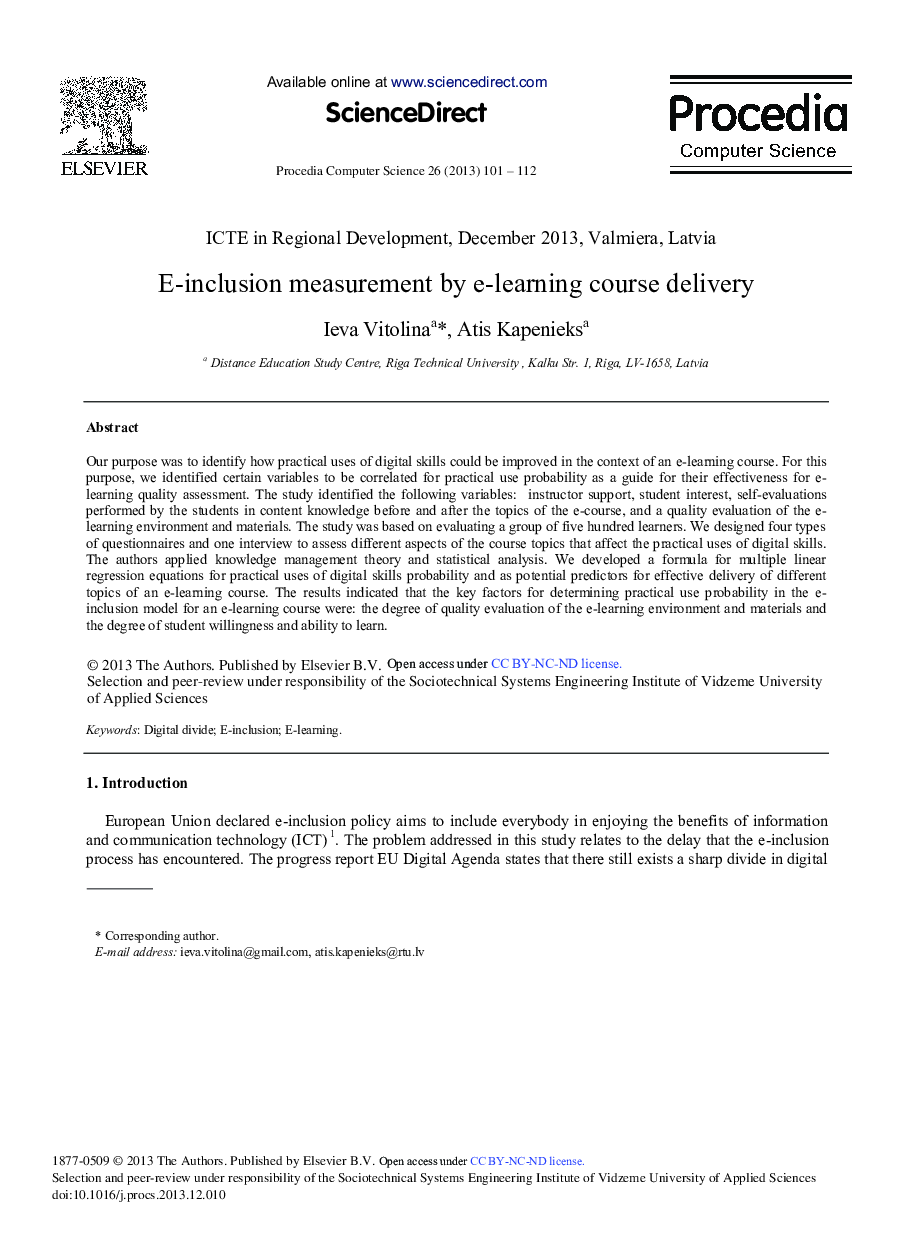| Article ID | Journal | Published Year | Pages | File Type |
|---|---|---|---|---|
| 486443 | Procedia Computer Science | 2013 | 12 Pages |
Our purpose was to identify how practical uses of digital skills could be improved in the context of an e-learning course. For this purpose, we identified certain variables to be correlated for practical use probability as a guide for their effectiveness for e- learning quality assessment. The study identified the following variables: instructor support, student interest, self-evaluations performed by the students in content knowledge before and after the topics of the e-course, and a quality evaluation of the e- learning environment and materials. The study was based on evaluating a group of five hundred learners. We designed four types of questionnaires and one interview to assess different aspects of the course topics that affect the practical uses of digital skills. The authors applied knowledge management theory and statistical analysis. We developed a formula for multiple linear regression equations for practical uses of digital skills probability and as potential predictors for effective delivery of different topics of an e-learning course. The results indicated that the key factors for determining practical use probability in the e- inclusion model for an e-learning course were: the degree of quality evaluation of the e-learning environment and materials and the degree of student willingness and ability to learn.
